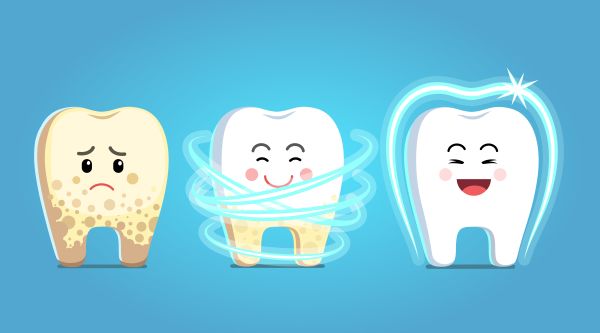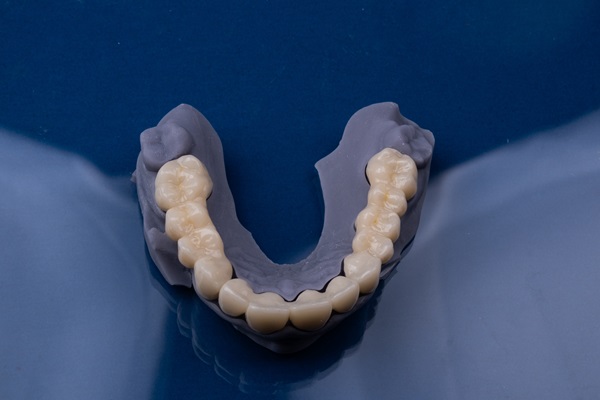Preventive Dentistry: 5 Things You Need to Know About Sugar and Tooth Health

Our mothers have all taught us consuming sweets causes cavities but that preventive dentistry can help counteract the effects. The first thing to know is that this is not exactly correct. The bacteria in plaque feasts on residual sugar left on teeth. This creates lactic acid build up which lowers the pH surrounding the teeth, eroding minerals, dissolving the tooth’s enamel and exposing the core of the tooth.
Sugar consumption and tooth health
Lactic acid
Preventative dentistry reveals it is the lactic acid doing the real damage to tooth health, but the amount of sugar consumed directly correlates to the amount of lactic acid being produced. Therefore, more sugar does in fact equal greater risk to the health of teeth. And so in this sense mom is right when she says the sweet tooth will come back to bite.
Data on sugar consumption and cavities
The current World Health Organization recommendation is 10 percent sugar intake. However, a study done by BMC Public Health indicates that is sugar consumption is reduced to less than three percent of daily energy intake then the risk of cavities is ideally diminished. This study also shows that as people with high rates of sugar consumption get older, the rate at which then get cavities goes up 10 fold.
Another thing preventative dentistry teaches is that sugar-free or diet products may not be necessarily better for the teeth. If they are highly acidic, they will erode enamel all the same. A final fact regarding honey: despite being natural and healthier for the body than processed sugars, its adhesive quality can make it more susceptible to bacteria on the teeth.
Protecting the teeth
Preventative dentistry suggests these five ways of reducing the amount of sugar coming in contact with your teeth
- Brushing your teeth (preferably with fluoridated toothpaste) and flossing on a regular basis preferably twice a day
- If one must, drinking sugary drinks through a straw to avoid contact with teeth
- Drinking lots of water (fluoridated if possible) with sugary foods to rinse off teeth
- Drinking milk — the basic pH will counteract acid production
- Substituting fresh fruit for fruit-flavored products with refined sugar, e.g., yogurt with fresh blueberries rather than blueberry flavored yogurt
Additional consequences
The deterioration of teeth through the overconsumption of sugar may have more consequences than the immediate health of individual teeth. The underlying threat to each tooth is gum disease. Developing gum disease, a result of plaque build-up, not only threatens the health of teeth but can cause other serious medical conditions.
Conclusion
Consuming lots of sugar will result in bacteria creating large amounts of lactic acid on the teeth. This will erode the enamel and make teeth prone to cavities and other diseases. Proper hygiene and fluoride can reduce risk even when sugar is present in the diet, but reducing sugar intake below three percent of total energy intake is the best way to ensure tooth health.
Are you considering preventive dentistry in the San Jose area? Get more information at https://www.ddsbaik.com.
Check out what others are saying about our services on Yelp: Read our Yelp reviews.
Related Posts
When considering full mouth reconstruction to restore oral health, it is important to learn about the process, including the choice to make. When multiple dental issues are present, a full mouth reconstruction is usually the best procedure to correct the problems and restore oral functions and one's appearance. Since there is a lot of information…
Tooth extraction can be a frightening concept, especially for those who have never had a tooth removed before and are not sure what to expect or those who have had a bad experience with extraction in the past. However, there are various things you and your dentist or oral surgeon can do to help mentally…
Dental implant surgery is a popular and long lasting way to replace a missing tooth, but like any surgeries, there is a recovery process that patients must go through. If you are considering a dental implant or had implant surgery done recently, it’s important to understand what to expect during the recovery period.The dental implant…
Having sensitive teeth is a frustrating, painful, yet very common problem. Whether you're dealing with occasional discomfort or constant sensitivity, there are steps you can take to help manage your symptoms and improve your quality of life. Here are some of those steps: Use a toothpaste designed for sensitive teeth: There are toothpaste formulations specifically…


